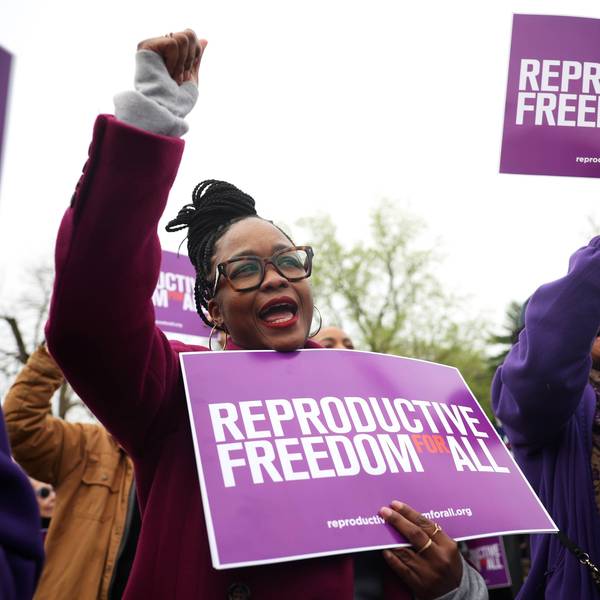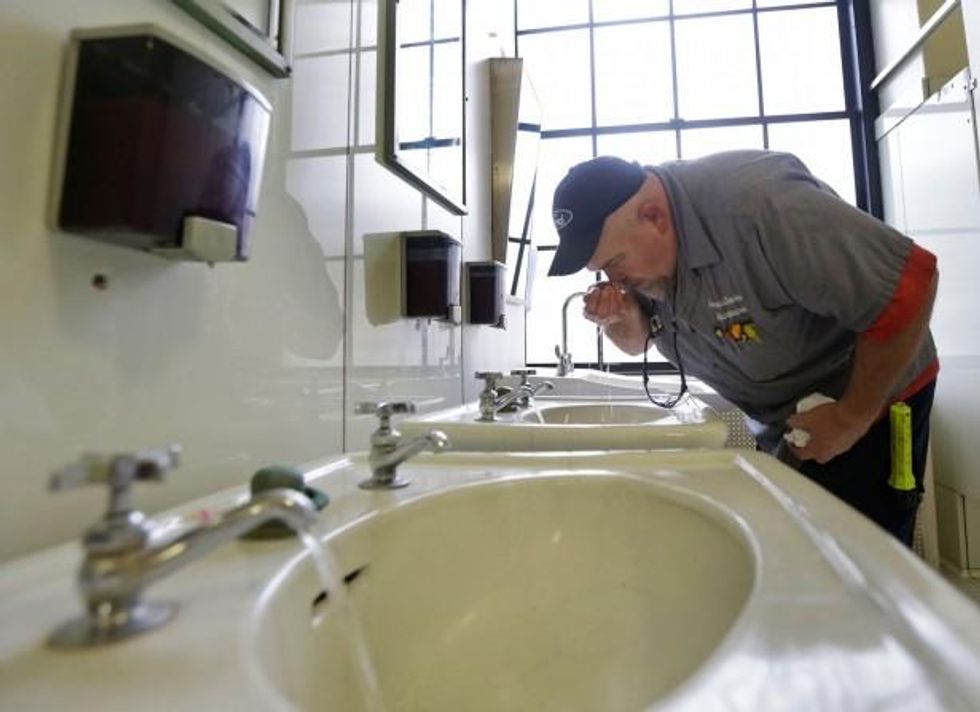"[T]he CDC recommends -- out of an abundance of caution -- that pregnant women drink bottled
water until there are no longer detectable levels of MCHM in the water distribution system."
This statement, released Wednesday night by the West Virginia Department of Health and Human Resources, has left many of the state's residents wondering how safe the water really is.
"If it is not safe for me to drink pregnant, is it safe for my 55-pound daughter to drink or our pets?" asked Charleston resident Jennifer Kayrouz, who is 38 weeks pregnant, according to ABC News. "It's very misleading. We got the green light, and three days later were told this one population really shouldn't drink it."
She added, "What are we supposed to believe?'"
Hundreds of thousands of people in nine West Virginia counties were told last Thursday to avoid using tap water due to a massive spill from coal processing plant Freedom Industries of the chemical MCHM into the Elk River, which is a key water source.
That ban has now been lifted for a majority of people affected, with the CDC claiming that as long as the chemical level is no greater than 1 part per million, it is safe.
Yet, officials have questioned this standard of safety, given the dearth of studies about the health dangers of the chemical.
"We don't know enough about the toxicity of this particular chemical to know what its long-term effects are and what the maximum contaminant level really should be," said Scott Simonton, vice chairman of the West Virginia Environmental Quality Board, in an interview with CNN.
The CDC's warning comes as residents report discolored water flowing from their taps.
_____________________




